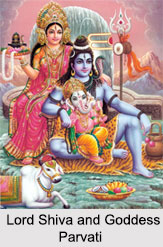 Shula Vrata is one of the eight vratas. It is observed on the day when the Sun shines in the Makara rashi (Capricorn sign) in the month of Pausha (mid December to mid January) on new moon day. This vrata is devoted to Lord Shiva and is performed to get his blessings. Shula vrata is mainly observed in the southern states of India and devotees keep this vrata with full commitment and dedication.
Shula Vrata is one of the eight vratas. It is observed on the day when the Sun shines in the Makara rashi (Capricorn sign) in the month of Pausha (mid December to mid January) on new moon day. This vrata is devoted to Lord Shiva and is performed to get his blessings. Shula vrata is mainly observed in the southern states of India and devotees keep this vrata with full commitment and dedication.
Myths of Shula Vrata
According to the myths, Lord Vishnu was able to kill the cruel demon Kalanemi, Parashurama killed Kartaviryarjuna by observing this vrata. Lord Vishnu also got rid of worst headache after observing this vrata and Lord Brahma got relieved of highly painful stomach-ache because of the glory of this vrata. The great powerful Lord Virabhadra explained the greatness of this vrata to Vanu Kambha.
Rituals of Shula Vrata
On that day of Shula Vrata, the observer prays to Lord Shiva by holding three-headed spear (Shula) accompanied by Goddess Shakti. On this day, Goddess Parvati is also prayed and given the same importance. The idol of the Lord Shiva is anointed with "abhisheka", a custom in which God is bathed with milk, curd, ghee, sugar and honey. After this special offerings called "naivedyam" are prepared and offered to Lord Shiva and Goddess Parvati.
All the ceremonies of the Shula vrata must be performed with absolute devotion and the devotees must spend the day admiring and listening to the glories of Lord Shiva. It is also necessary to visit a Lord Shiva temple and worship there on this day. The observer of the Shula vrata should also put together some form of donations to those disciples of Lord Shiva who adorn "rudraksha" beads around the neck. The devotees keep fast and food is eaten only once all during the day along with other devotees.
Significance of Shula Vrata
One would get victory over all the enemies and free from all the diseases if they observe the Vrata. They will also get the boon of offspring and prosperities. One who observes Shula vrata is blessed by Lord Shiva and he/ she will easily win over their enemies. The observer is also conferred with good health and will stay free from the diseases throughout his/ her life. They will live a joyful and contended family life and prosperity and happiness will never part ways from them.




















